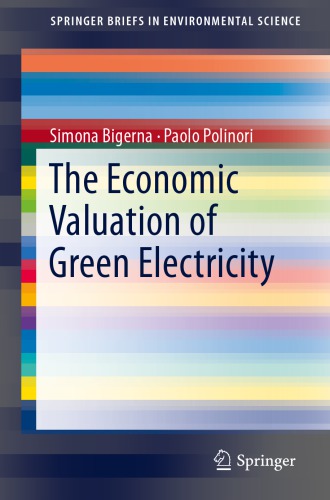

Most ebook files are in PDF format, so you can easily read them using various software such as Foxit Reader or directly on the Google Chrome browser.
Some ebook files are released by publishers in other formats such as .awz, .mobi, .epub, .fb2, etc. You may need to install specific software to read these formats on mobile/PC, such as Calibre.
Please read the tutorial at this link: https://ebookbell.com/faq
We offer FREE conversion to the popular formats you request; however, this may take some time. Therefore, right after payment, please email us, and we will try to provide the service as quickly as possible.
For some exceptional file formats or broken links (if any), please refrain from opening any disputes. Instead, email us first, and we will try to assist within a maximum of 6 hours.
EbookBell Team

4.1
40 reviewsThe aim of this book is to analyze the relationship between renewable energy sources and citizens, focusing both on demand and supply. Today, the consequences regarding the use of fossil energy are seen from a different perspective because the issues related to climate change are evident worldwide. Thus, climate change and resource depletion are real problems to be addressed for the welfare of society. Renewable energy sources (RES) are essential to reduce polluting emissions, but they can produce a range of environmental effects which might be detrimental to human activities as attested by the several types of the Nimby effect (“Not In My Back Yard”). This is because infrastructure siting usually offers different pros and cons to stakeholders and the local populations affected. Nevertheless empirical evidence shows that in many countries, society is willing to pay a significant amount to facilitate adoption of renewable technologies. With RES, citizens are called on to play a dual role – not only that of end consumers but often also stakeholders in the local production process. In this book we try to deal with this dual role played by the citizens to evaluate the actual public acceptance of RES. We address a specific and important area of the economic analysis: willingness to pay (WTP) and willingness to accept (WTA). The research evaluates the attitude of citizens towards the end use of green energy by investigating the likelihood of acceptance of a new infrastructures related to RES production. The book, therefore, is not about how to reconcile consumers and citizens, rather it explores the main determinants of peoples' behavior for a better understanding of this phenomenon.